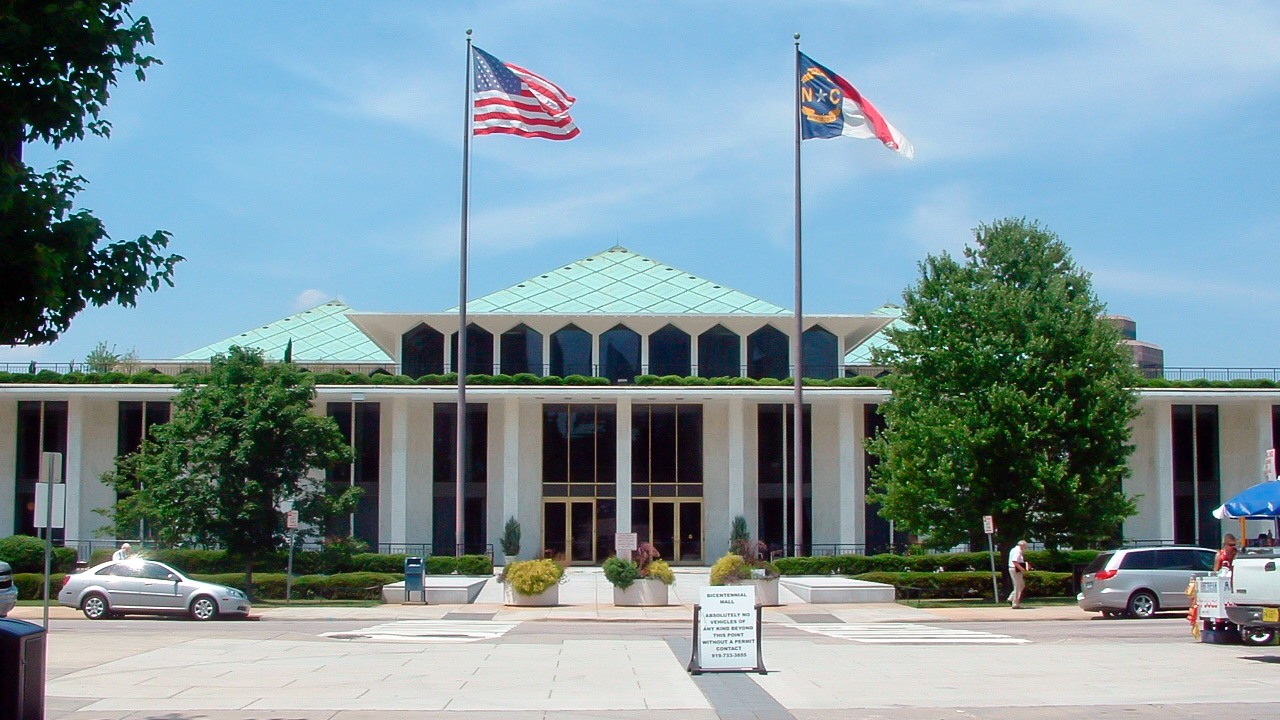North Carolina has failed to legalize mobile sports betting during the latest legislative session. Hope first started to wane after legislation faltered in the House during the last days of June: legislators approved a bill to legalize the market while also shooting down a separate proposal that worked in tandem with the other for online betting to become law. While lobbyists were hopeful of resurrecting the effort before June 30, the session has now adjourned without that happening.
Optimism of a last-second resuscitation faded by Thursday evening, with lawmakers behind the push admitting defeat. “Sports betting continues to be worked on, but I do not think it will resurface this session,” House Majority leader John Bell said that day, according to WRAL. Lawmakers completed their work on Friday, including the passage of a budget bill, without sports gambling included.
The bills would have allowed for at least 10 and up to 12 online wagering operators to be licensed to provide gaming both via computers and mobile devices. Particulars of the legislation saw a series of changes during the last weeks of June, including amendments that left out of the bill college and amateur sports betting. The plan would have allowed the market to launch as soon as Jan. 1.
A common argument leveraged by opponents was a potential increase in problem gambling and other social problems. “How can we even think this is a good idea for our state?” Rep. Pricey Harrison, a Guilford County Democrat, said during a House debate last week, according to the cited source. “This bill subsidizes industry that relies on increasingly predatory practices to generate profits and fails to protect and support increasingly good quality jobs.”
The measure attracted both support and opposition from members of both parties, proving its controversial nature. Those in favor said a legalized market would bring more revenue to the state and provide consumer protections to gaming already taking place. The legislation had the backing of the state’s three major pro sports franchises and the Charlotte Motor Speedway.
NHL’s Carolina Hurricanes general manager Don Waddell
“If we don’t think there’s gambling going on in North Carolina, you live under a rock,” NHL’s Carolina Hurricanes general manager Don Waddell told Raleigh News & Observer. “Two things you can gain out of it: You gain tax revenue and you also get control of it. It’s just like the lottery. […] We’re disappointed, but we are also optimistic that we’ll see it in the near future.”
The proposal would have permitted certain sports facilities to open sports lounges, tapping into a new lucrative revenue stream. Both Waddell and Charlotte Hornets president Fred Whitfield had met with lawmakers throughout the failed legalization process. The franchises alleged failing to legalize mobile wagering would put them behind from a revenue standpoint in comparison to other pro teams.
Mobile sports betting legislation would have allocated $2 million a year for problem gambling treatment. Operators would have had to pay a 15% on gross wagering revenue minus winnings paid out plus promotional credits and federal excise. The deduction for promotions and credit would have been phased out in five years, as per the latest proposal. Application fees for sportsbook operators were set at $1 million, with the same price also established for renewal.
More than 20 states have legalized online sports wagering, including neighboring Virginia and Tennessee. Estimates before a college sports betting ban was introduced predicted the North Carolina betting market would have been around $5 billion per year; while supporters forecasted about $50 million in yearly tax revenue.
PNC Arena in Raleigh
PNC Arena, an indoor arena located in Raleigh that is home to the Hurricanes, would have been allowed to accommodate sports wagering under the proposed bill. Officials of Centennial Authority, owner of the building, lamented that the legislation was voted down. The arena could have added a sports lounge or sportsbook as part of a planned renovation. Enhancements to the venue have been in the planning stages for years but were put on hold because of the Covid-19 pandemic.
“It activates parts of the building all the time,” said on Wednesday Philip Isley, the chairman of the Centennial Authority Board, according to WRAL. “That’s the big deal. […] That then becomes another part of how we view this building as more of a community asset that is activated all the time versus just on game nights or concerts or other community events.”
The timeline for a potential mobile sports betting legalization in the Tar Heel State is now anyone’s guess. The legislature will likely reconvene again this year, although an official date has yet to be announced. Pro sports franchises are expected to keep supporting the move, as well as legislators that were behind the failed push. “Sports wagering is going to remain an issue for the state of North Carolina,” confirmed Rep. Jason Saine last month.
Sports gambling in North Carolina is currently legal only on a retail basis at two Cherokee casinos in the far-western part of the state, meaning a large part of North Carolinians currently does not have convenient access to legal sportsbooks.
A new retail option is, however, set to soon join the two existing ones. Last week, Delaware North spokesman Glen White told WRAL that the Catawba Nation-owned Two Kings Casino in Kings Mountain would be debuting the state’s third retail sportsbook this fall, ahead of the football season.



